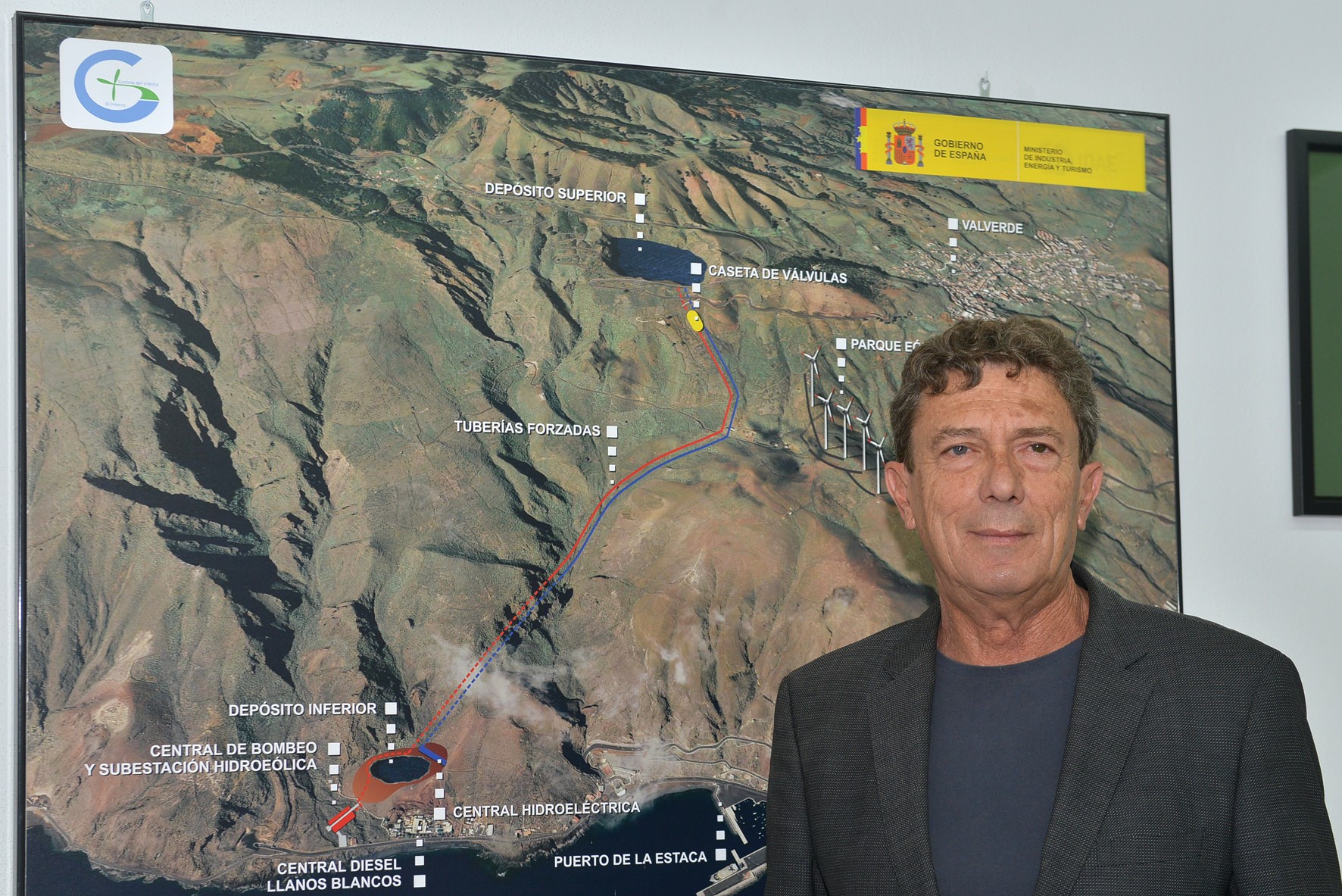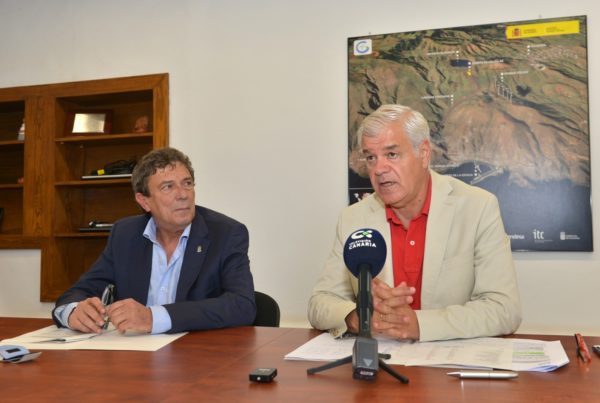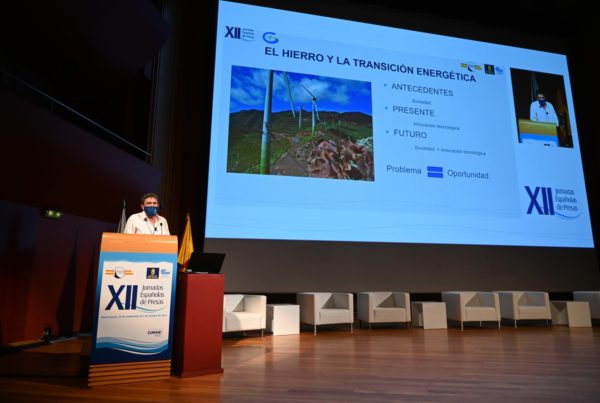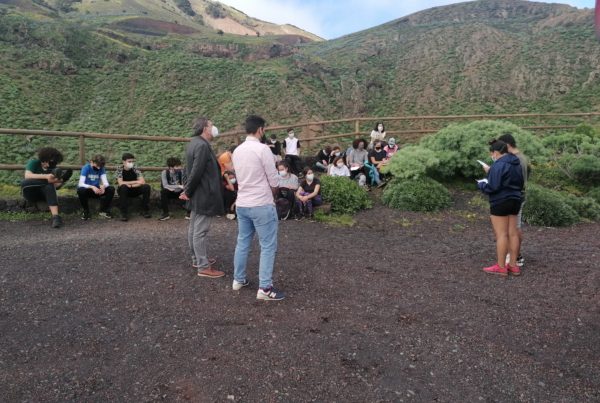Gorona del Viento’s Chief Executive Officer, Santiago González, has countered claims by the Agrupación Herreña Independiente [Independent El Hierro Association] (AHI), attempting to link a staff restructuring at the company with the alleged interests of ENDESA, one of the companies responsible for controlling production. Mr González responded emphatically and unequivocally, stating that AHI is attempting to mislead public opinion, and that it must be aware that “Gorona is not, and never will be, up for sale”.
The company’s CEO, who is also head of the El Hierro Island Council, described it as “shameful that a separatist entity which was, during its period in government, a supporter of Gorona del Viento should, in such a ‘shabby’ way, use an internal staffing issue to cast doubt, through an unprecedented media campaign, on the continuance of Gorona del Viento. They appear more intent on devouring the crumbs that fall from the table than on putting forward constructive proposals or suggestions, but we are used to their policy of opposition to everything.”
Santiago González pointed out that AHI has representation on the El Hierro Island Council and on Gorona del Viento’s Management Board. These could, under standard political and administrative procedures, request information in relation to the Company’s staffing restructure. Mr González accused the AHI representative of “opting instead, along with his party, for the ‘media circus’ route, and accusing the Island Council’s president of attempting to “sell” the operation of an energy supply system — an asset that in any case belongs to the people of El Hierro — while at the same time putting at risk the good name of a globally recognised renewable energy system of which we should be proud, and which should be left out of political battles”.
Santiago González stated that the changes to the organisational structure of Gorona del Viento are “not about reducing the workforce, but are, on the contrary, a response to the demands of a new strategic plan for the exploitation, consolidation and incorporation of new sources of renewable energy, such as solar energy and wave power. This will require the company to take on new staff who specialise in these areas of energy production”.
“The Agrupación Herreña Independiente has lost its way, and is attempting to mislead public opinion with unfounded accusations giving the impression that the structure of Gorona del Viento is being dismantled, or that it is being used to serve current shareholders’ external interests,” stated Mr González. “In fact, the company’s own Strategic Plan has signalled a new drive to find new sources of clean energy. This inevitably involves a need for new synergies and specialists. It is definitely not a reduction in the workforce, but an overhaul”.
“In the midst of its political amnesia,” Mr González went on to say, “the AHI seems to have forgotten that one of Gorona del Viento’s Master Plan’s stated objectives is to move forwards gradually with all the shareholders, and to act as a single owner”.
“It is, moreover, surprising and almost comical that AHI, with its ingrained fault-finding political strategy, should accuse us, those currently in charge of managing production at Gorona del Viento, of being the direct cause of the existence or otherwise of the trade winds”. Santiago González alluded to the penetration figures for renewable energies in 2019, which reached 56% with a €1,363,447 profit, compared with the figures for 2020, in which penetration fell to 42%, although Gorona del Viento’s profits rose to €2,740,000.
Santiago González concluded by inviting Agrupación Herreña Independiente’s representatives to adopt a more sophisticated, constructive and enriching policy: “At times like these we should all be singing from the same hymn sheet”.








